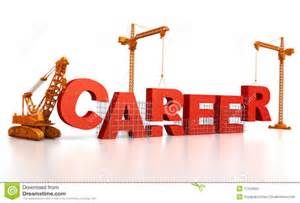 Rewiring your career may be a smart move, experts say, and offer 4 tips to get you started.
Rewiring your career may be a smart move, experts say, and offer 4 tips to get you started.
Changing jobs seems like a relatively common and simple feat. You leave your project manager position at one firm and pick up a similar gig, maybe closer to home, with better benefits or pay. Changing careers, though, sounds more daunting. Moving from the publishing industry to, say, health care—is it even possible, and if so, how would you do it?
Shifting careers, or re-careering, is possible, experts say, and a wise way to stay competitive in today’s job market. Two fields that hold particular promise for growth are health care and IT. Dr. Eric Darr, interim president of Harrisburg University of Science and Technology in Pennsylvania, says opportunities abound in these areas. Harrisburg is a private institution focused on science, technology, engineering and math (STEM). Darr says the student body includes everyone from recent high-school graduates to students in their 30s, 40s and 50s looking to reskill and “readjust their careers.”
According to the Bureau of Labor Statistics, health care practitioners and technical occupations are projected to grow 26 percent from 2010-2020, while computer and math occupations are projected to grow 22 percent during that time.
How to Make the Leap: 4 Key Tips
So the opportunities are out there, especially in health care and IT. But how do you seize them? Consider these sage bits of advice:
- Conduct informational interviews with individuals working in the field you want to pursue. Meeting face-to-face with people already in your desired area is invaluable, says Mark Gasche, senior director of career services for Empowered UCLA Extension. This is a chance to ask critical questions about salary or potential barriers to entering the field, Gasche explains. Afterward you’ll feel better or worse, he says. If you feel worse, then it’s a challenge to your initial plan. If you feel better, then you’ll be armed with more knowledge about how to continue.
- Consider careers that will be safe from outsourcing. Darr says predicting which fields will be outsource-proof can be tricky, “But if you are in health care and the job is to work with patients and analyze data, those things are not going to be outsourced because they can’t be.”
- Don’t stop working. “Today you can take courses and certifications at night and on weekends. You do not have to drop out of the system in order to participate,” says Dr. Tracey Wilen-Daugenti, vice president and managing director at the Apollo Research Institute. Many companies give support to workers pursuing education while they work, she notes. If you pursue education or training at a higher-education institution, be sure to select one that doesn’t relegate adult education to second-class status, Darr says.
- Volunteer. Wilen-Daugenti suggests that if you’re not working, volunteer for an organization in the area where you want to be hired: “In our ongoing career research, an individual noted that he was volunteering in an IT position at a key hospital so that he understood the systems and when a job opened he would be the first pick to be hired.” Volunteering lets you test the job and learn the systems, while people in the firm get to know you and your capabilities, she explains.
Kristina Cowan
Changing jobs seems like a relatively common and simple feat. You leave your project manager position at one firm and pick up a similar gig, maybe closer to home, with better benefits or pay. Changing careers, though, sounds more daunting. Moving from the publishing industry to, say, health care—is it even possible, and if so, how would you do it?
Shifting careers, or re-careering, is possible, experts say, and a wise way to stay competitive in today’s job market. Two fields that hold particular promise for growth are health care and IT. Dr. Eric Darr, interim president of Harrisburg University of Science and Technology in Pennsylvania, says opportunities abound in these areas. Harrisburg is a private institution focused on science, technology, engineering and math (STEM). Darr says the student body includes everyone from recent high-school graduates to students in their 30s, 40s and 50s looking to reskill and “readjust their careers.”
According to the Bureau of Labor Statistics, health care practitioners and technical occupations are projected to grow 26 percent from 2010-2020, while computer and math occupations are projected to grow 22 percent during that time.
How to Make the Leap: 4 Key Tips
So the opportunities are out there, especially in health care and IT. But how do you seize them? Consider these sage bits of advice:
- Conduct informational interviews with individuals working in the field you want to pursue. Meeting face-to-face with people already in your desired area is invaluable, says Mark Gasche, senior director of career services for Empowered UCLA Extension. This is a chance to ask critical questions about salary or potential barriers to entering the field, Gasche explains. Afterward you’ll feel better or worse, he says. If you feel worse, then it’s a challenge to your initial plan. If you feel better, then you’ll be armed with more knowledge about how to continue.
- Consider careers that will be safe from outsourcing. Darr says predicting which fields will be outsource-proof can be tricky, “But if you are in health care and the job is to work with patients and analyze data, those things are not going to be outsourced because they can’t be.”
- Don’t stop working. “Today you can take courses and certifications at night and on weekends. You do not have to drop out of the system in order to participate,” says Dr. Tracey Wilen-Daugenti, vice president and managing director at the Apollo Research Institute. Many companies give support to workers pursuing education while they work, she notes. If you pursue education or training at a higher-education institution, be sure to select one that doesn’t relegate adult education to second-class status, Darr says.
- Volunteer. Wilen-Daugenti suggests that if you’re not working, volunteer for an organization in the area where you want to be hired: “In our ongoing career research, an individual noted that he was volunteering in an IT position at a key hospital so that he understood the systems and when a job opened he would be the first pick to be hired.” Volunteering lets you test the job and learn the systems, while people in the firm get to know you and your capabilities, she explains.
Kristina Cowan

 This is a guest post by the daughter of Steve Denning, Stephanie Denning, who writes about leadership issues from a millennial perspective. The views expressed here are her own.
This is a guest post by the daughter of Steve Denning, Stephanie Denning, who writes about leadership issues from a millennial perspective. The views expressed here are her own.